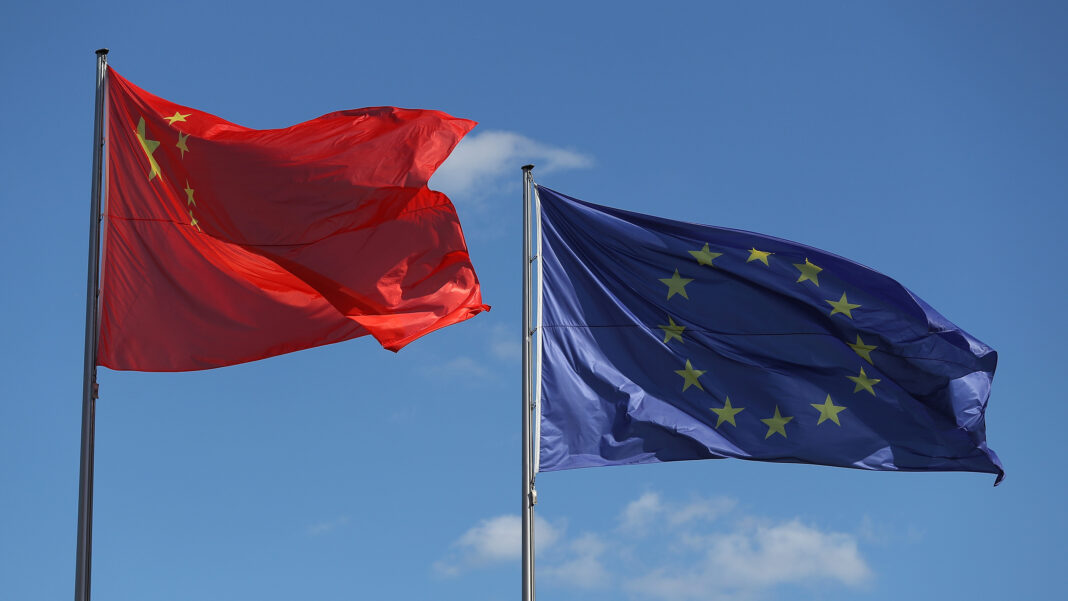A September 21 report published by the European Chamber of Commerce in China has called on Beijing to reset relations to the “reform” era of the 1990s, as tensions between the two parties edge closer to the tensions seen between the US–China.
In a stark assessment of the pressures and risks facing European companies in China, the non-profit, non-governmental organisation outlines the risk of China’s lost “allure” and issues some 967 recommendations for China to fulfil its economic potential.
Jens Eskelund, vice president of EU Chamber of Commerce in China, tells fDi that “it is bleak and there is little to cheer about”.
Ideology trumps the economy
“European companies are still downbeat about the situation and it’s grating on people that there is no clear exit strategy for zero-Covid, but that’s why we are raising a flag to say there’s no reason it has to be this way,” he says.
There’s no reason it has to be this way
JENS ESKELUND, VICE PRESIDENT OF EU CHAMBER OF COMMERCE IN CHINA
Established in 2000, the European Chamber of Commerce in China has been an important link between European companies and the liberalised Chinese economy. Now, it finds itself caught between frustrated European companies and the Chinese authorities, and harks back to a time of greater predictability and pragmatism.
“China’s move away from the rest of the world — embodied by the restrictions imposed under its Covid-19 policy — indicates that, at the moment, ideology is trumping the economy,” the report says. “In the past, China would have confronted challenges [such as geopolitical tensions and calls from foreign companies to address human rights issues] with the same kind of pragmatism that accelerated so much of its development over the decades.”
The chamber calls on Beijing “to roll out its proven toolbox from the 1990s, and turn its attention back to reform and opening up to reaffirm its credentials of being a reliable, predictable and efficient market”. Meanwhile, it points out that “several companies are also now looking into the options of reshoring, ‘nearshoring’ and ‘friend-shoring’.”
This follows stated concerns over foreign investors’ place in China’s future. In May, following a business confidence survey, the EU Chamber of Commerce in China’s president Jörg Wuttke told fDi that China was losing its “allure”. The country suffered its worst first half year for greenfield projects on record, according to fDi Markets, as it struggles to match its economic paradigm shift to steady foreign direct investment inflows.
The Asian Development Bank (ADB) recently wrote in a report that China’s gross domestic product growth is slower than that of developing Asian countries for the first time since 1990.
EU–China rift
The EU Chamber of Commerce’s report highlights that China’s need for the EU market is still evident, while the Chinese market has become less important for the EU. Between January and July, China’s exports to the EU increased 19.7%, whereas EU exports to China declined 7.5% year-on-year, according to the General Administration of Customs China.
This is in stark contrast to the EU–China deal struck in 2020, slated to grant European companies better access to the Chinese market, but which was subsequently frozen by the EU parliament after both parties had imposed sanctions on one another.
This growing trade imbalance comes at a time of heightened geopolitical tension and growing distance between China and the EU amid calls to bring the bloc closer to Taiwan, the island which Beijing counts as its own territory.
In September, a joint letter signed by 35 European lawmakers called on the EU to strike an EU–Taiwan bilateral investment agreement. This follows the trade and investment dialogue held between the two in May.
Mr Eskelund concedes that to an extent EU–China relations are starting to resemble the US–China relationship, but he adds there are still differences. Despite the rift, he says, European policymakers are not calling for a full-scale decoupling from China.
Consultancy Rhodium pointed out in a report published on September 14 that there are only a “chosen few” European companies still standing in China, with big multinationals and notably German companies leading the pack.
Between January and August this year, European greenfield investment into China fell further still by 35% compared to the same period last year, fDi Markets data show.

